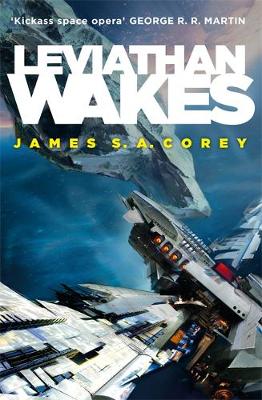Reviewed by Metaphorosis Reviews on
The opening was solid, and this was certainly a competently written book, but to my mind, it lacked a lot of heart. I never really got interested in most of the characters. Two key characters are Holden, a ship captain, and Miller, an ex-detective. Holden and his crew work reasonably well as characters, though they never drew a sustained interest. Miller, on the other hand, I found weak - he develops an obsession that I thought was pretty thinly supported, and yet is central to the plot.
The environment and politics were interesting and credible, and I'd have been happy to see more of them. And the book does end up with a good mystery, but it's nothing we haven't seen before.
Technically, there are some flaws. The authors don't claim it to be hard SF, but even soft SF needs to get current science right. There are two definitions of 'anaerobic' offered here, and they're both wrong. (1. bacteria that aren't airborne; 2. bacteria that die in high oxygen). Even allowing for the first as "character ignorance" (rather than "author ignorance"), it's hard to see how this got into the finished book.
All in all, a disappointing read. Adequate, and certainly not bad, but certainly not as good as I'd hoped for. I'm mildly interested in what happens next, but don't feel a burning need to buy the rest of the series.
Reading updates
- Started reading
- 16 March, 2013: Finished reading
- 16 March, 2013: Reviewed
